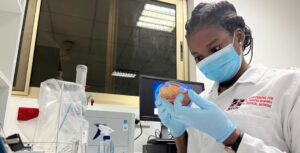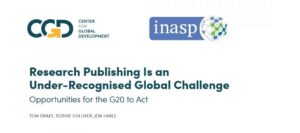Study finds poor knowledge of autism among doctors in Sri Lanka
Autism is a neurological and developmental diagnosis seen from early childhood marked by difficulty in communicating, forming relationships and using languages. In Sri Lanka, one in 93 children have been found to have autism. Studies have shown that the condition of an autistic child can improve with early diagnosis. Early diagnosis and provision of further information to caregivers is largely linked to the level of physicians’ knowledge of autism.
A recent study carried out in Sri Lanka to assess doctors’ knowledge of diagnostic features and co-morbidities of childhood autism in a tertiary care hospital has found that around 50% of the doctors were unaware of some of the signs and symptoms of it.
“Our study has revealed that the knowledge of diagnostic features and comorbidities of childhood autism among doctors is poor,” says Dr Yasodha Maheshi Rohanachandra, lead author of the research article.
“There is a lack of educational psychologists and teachers trained in specialized autism educational strategies. Also, there is a poor awareness about autism in the community and services for children with autism in Sri Lanka are limited and centralized,” she adds.
According to the research, the majority (62%) of the 176 surveyed doctors believed that they lacked the competence to identify autism.
Awareness of symptoms among doctors was highest regarding impaired social interactions (76%). In contrast, only 61% of doctors were aware that restricted, repetitive interests/behaviours are also a potential symptom. The knowledge of medical professionals in identification of children with autism had not been assessed previously in Sri Lanka.
“There is a need for regular in-service programmes for medical officers to help improve their knowledge to enable early identification and referral,” says Dr Rohanachandra.
She suggests: “Improving awareness about autism among early childhood educators such as pre-school and primary school teachers would also benefit these children by facilitating early referral to services.”
According to the authors, providing training to teachers on autism specific teaching methods and setting up resource centres in school is another important step in improving the learning opportunities of children.
The authors recommend de-centralizing early intervention services to be beneficial in making services more accessible. It also emphasizes a government initiative to support families of children with autism to access appropriate care including financial support and respite services; having a child with autism can place a significant stress on the family system.
For more information: Rohanachandra, Y.M. et al., (2017). Knowledge about diagnostic features and comorbidities of childhood autism among doctors in a tertiary care hospital. Sri Lanka Journal of Child Health. 46(1), pp.29–32. The article is available online for free access on the SLJOL platform supported by INASP.
About the Journal
Sri Lanka Journal of Child Health is published by the Sri Lanka College of Paediatricians and is the primary organ of Continuing Paediatric Medical Education in Sri Lanka. It is designed to publish original research articles and scholarly articles by recognized authorities on paediatric subjects.
About SLJOL
Sri Lanka Journals Online (SLJOL), a part of INASP’s Journals Online, is a database of journals published in Sri Lanka, covering the full range of academic disciplines. The objective of SLJOL is to give greater visibility to the participating journals and to the research they convey. It is managed by the National Science Foundation of Sri Lanka and was developed in collaboration with INASP. There are now 75 journals on SLJOL, listing 8997 articles.
About INASP
Founded in 1992, INASP is an international development charity working with a global network of partners in Africa, Latin America and South Asia. In line with the vision of research and knowledge at the heart of development, INASP works to support individuals and institutions to produce, share and use research and knowledge, which can transform lives.
INASP’s approaches are based on the core pillars of capacity development, convening, influencing and working in partnership. INASP promotes equity by actively addressing the needs of both men and women across all our work and addressing issues of power within the research and knowledge system. INASP has projects in 28 countries, supporting all aspects of research and knowledge systems, from facilitating the provision of information to researchers to helping parliamentarians and civil servants to use research and evidence in policy making.
Disclaimer: Research published in journals hosted on the SLJOL platform is selected by the journals in accordance with their own editorial processes and criteria. INASP and the National Science Foundation of Sri Lanka provide hosting and guidance on good practices but are not involved in selection of research.
For further information
Thakur Amgai, Communications Consultant, INASP
Email: tamgai@inasp.info
Dr Sangita Shrestha, Communications Officer, INASP
Email: sshrestha@inasp.info

 Previous Post
Previous Post


